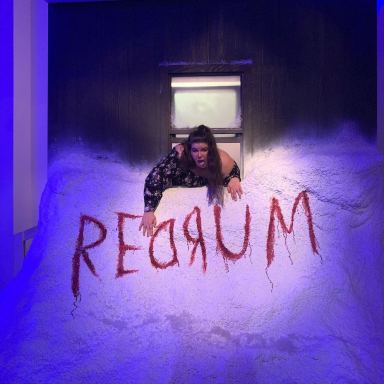Conspiracy Theory Movies: Paranoia and Politics
Conspiracy theory movies often take the form of political thrillers.
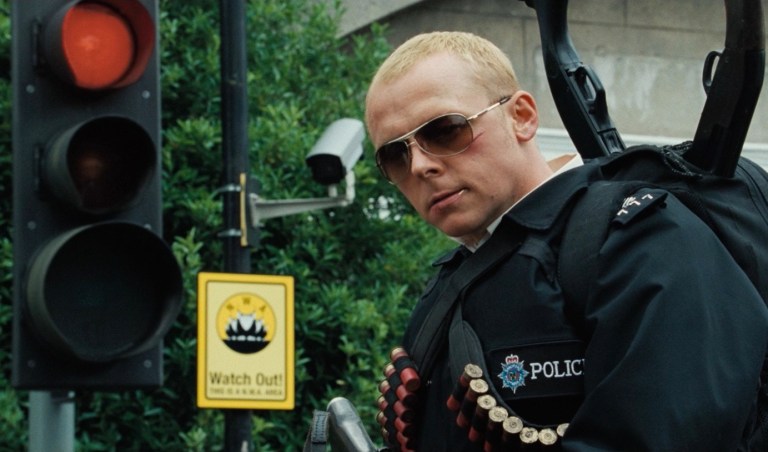
The term “conspiracy,” especially when it’s paired with the word “theory,” is often used to discredit and gaslight anyone who dares to suggest that the rich and powerful might conspire, whether constantly or intermittently, to hold on to their wealth and power
Table of Contents
But there have been several legitimate conspiracies uncovered throughout world history. One of the most famous was the Watergate break-in and coverup that led to the resignation of President Richard Nixon. Another would be the nonexistent “weapons of mass destruction” that were used as a pretext to the Iraq War.
One would have to be quite naive about the nature of politics and power not to believe that it’s a dirty and sordid business steeped in lies, half-truths, and deception. One would also have to be extremely gullible to simply accept the fact that the CIA’s budget has never been revealed to the American public. The very fact that we have a legal system and things such as criminal trials relies on the idea that not everyone can be trusted. That’s not paranoid—it’s realistic.
If one thinks about it, most movie dramas, although not full-blown political conspiracy thrillers, involve some level of deception and backstabbing and plotting. For some reason, moviegoers have no problem accepting that this is a fact of daily life—so long as it’s in the movies. It’s only when one suggests that real conspiracies exist in the real world that people look at you like you’re crazy. But as a famous crazy person once said, you ain’t paranoid if what you believe is true.
Here are some of the standout conspiracy movies from the 1950s to the present. Many of them, such as Z, Serpico, All the President’s Men, and Dark Waters, were based on real-life conspiracies.
Old Conspiracy Movies
The Man Who Knew Too Much (1956)
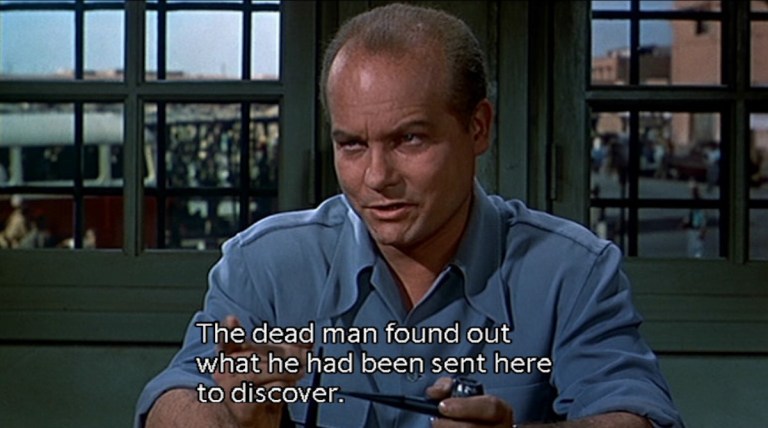
In a rare case of a director remaking his own film while almost entirely changing the plot, Alfred Hitchcock remade his 1934 film of the same name. Whereas the 1934 version involved a British couple whose daughter gets kidnapped in Switzerland, this updated version finds Dr. Ben McKenna (James Stewart) and his wife Jo (Doris Day) vacationing in Morocco with their eight-year-old son Hank. They accidentally witness the public murder of a man who, while he’s dying, tells Ben the imminent details of a political assassination about to take place in London. The architects of the upcoming assassination kidnap eight-year-old Hank McKenna to keep his parents silent about the upcoming murder. As they return to London, they are faced with the tall task of thwarting the assassination while keeping their kidnapped son alive. Hitchcock would later call his 1934 version “the work of a talented amateur” while claiming that the remake “was made by a professional.”
North By Northwest (1959)
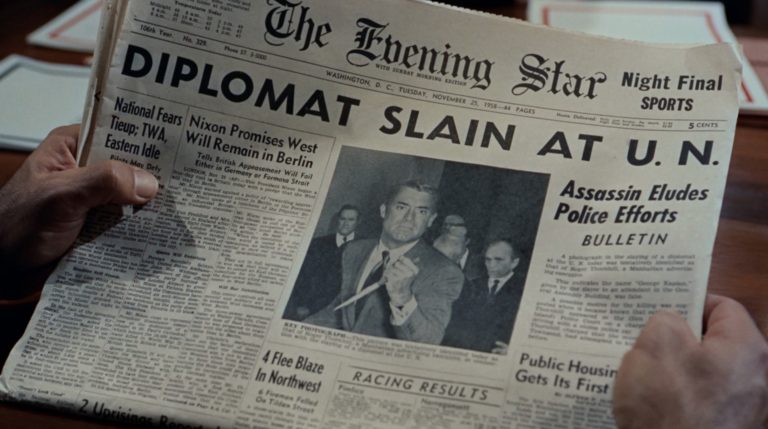
Alfred Hitchcock’s North By Northwest is a thriller that holds up to this day. With help from writer Ernest Lehman’s sharp script, Cary Grant and Eva Marie Saint perform brilliantly with charisma and class. Nominated for three Oscars, it is an action-packed story full of suspense, black humor, and political intrigue. An innocent man mistaken for a government agent is chased throughout the United States by goons of a mysterious organization. Their mission is to stop him from derailing their plan to export microfilm which contains government secrets. A review in The Guardian notes, “a product of the cold war, a contest which, as one top American spy here darkly remarks, Washington is worried about losing.”
The Manchurian Candidate (1962)
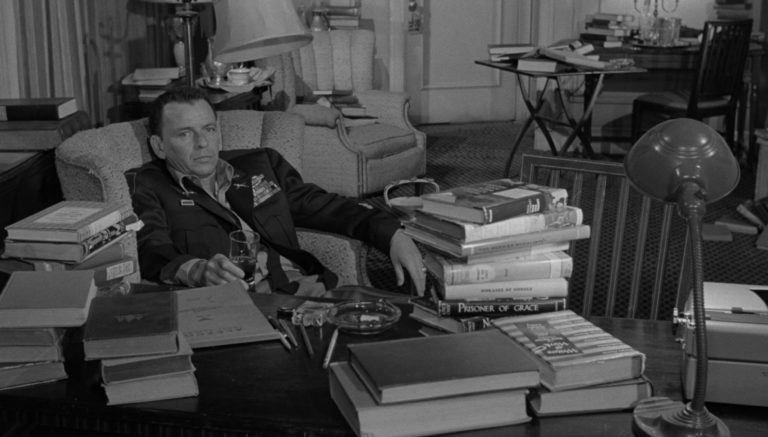
Adapted to the big screen from the novel of the same name, The Manchurian Candidate is a satirical thriller that tackles the political landscape with dark humor and a documentary-like realism. When his army platoon is captured, a Korean War veteran (Frank Sinatra) is brainwashed by communists. After returning to the United States to live a normal life, he becomes an unwitting assassin in a conspiracy to overthrow the U.S. government.
Seven Days in May (1964)
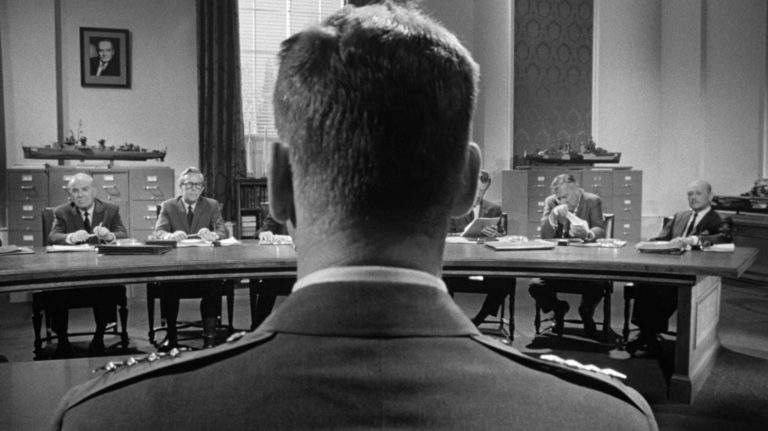
John Frankenheimer’s political thriller follows the United States military leaders’ plan to subvert the president because he supports a disarmament treaty with the Soviet Union. With the brilliant performances of its cast (Kirk Douglas, Burt Lancaster, Fredric March, and Ava Gardner), the movie brings to life the suspense and tension of the 1962 novel. In response to the film, IGN cheekily states, “Don’t you miss the threat of communism? I know I do.”
Z (1969)
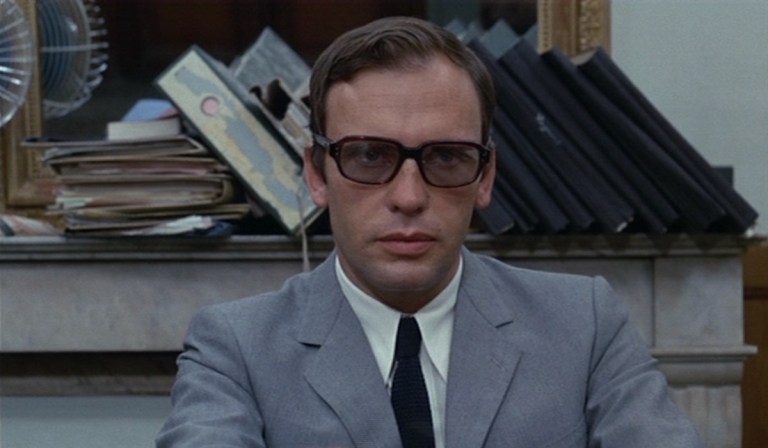
A political thriller based on the 1963 assassination of a Greek leftist named Grigoris Lambrakis, Z bears the distinction of being the first foreign-language film nominated for Best Picture at the Oscars. In a mid-sized Greek town, a pacifist organization plans to hold a rally. The group’s leader (Yves Montand) is run over and killed by what authorities claim was a drunk driver. But as a formality, the government appoints an investigator (Jean-Louis Trintignant) to investigate the death. To his dismay, he realizes that the man was purposely murdered by authorities. Roger Ebert writes, “It is about how even moral victories are corrupted. It will make you weep and will make you angry. It will tear your guts out. It is told simply, and it is based on fact….These would seem to be completely political events, but the young director Costa-Gravas has told them in a style that is almost unbearably exciting. Z is at the same time a political cry of rage and a brilliant suspense thriller. It even ends in a chase: Not through the streets but through a maze of facts, alibis and official corruption.”
70s/80s Conspiracy Movies
Serpico (1973)
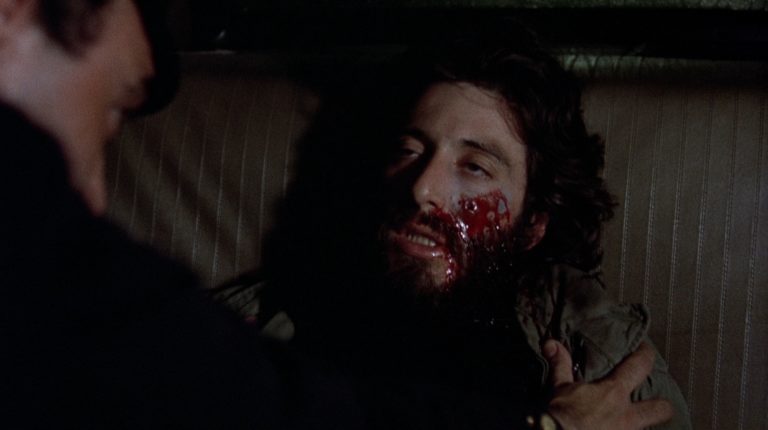
Adapted to the screen from the novel of the same name, Serpico features Al Pacino playing a NYPD officer battling corruption in the police organization, working as a whistleblower that results in an investigation. Directed by Sidney Lumet, this biographical-crime adventure attracted criticism from police officers due to being inspired by a real-life story. Al Pacino’s brilliant performance landed him the Golden Globe for Best Actor. In an article appearing in The New York Times, the real-life Frank Serpico said, “I still have nightmares. I open a door a little bit and it just explodes in my face. Or I’m in a jam and I call the police, and guess who shows up? My old cop buddies who hated me.”
Soylent Green (1973)
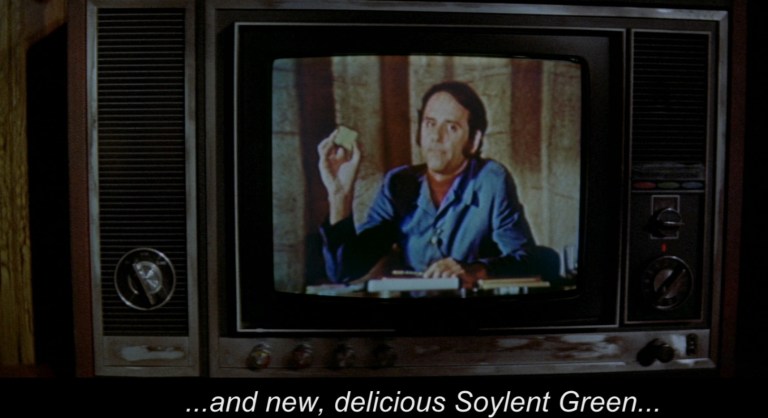
This dystopian futuristic horror film is set in the year 2022, when the world is ravaged by overpopulation. Things are so awful that the government provides suicide centers for those who want to kill themselves—after you drink the fatal poison, they even play soothing music and show you beautiful scenes of nature. Since food is scarce, most of the public receives their protein through little crackers called Soylent Green, which is supposed to be derived from soybeans. Charlton Heston stars as Detective Thorn, an investigator who slowly realizes to his horror that there are no soybeans in Soylent Green—it’s a government conspiracy to handle overpopulation by grinding up and recycling dead human bodies and baking them into edible green crackers.
Chinatown (1974)
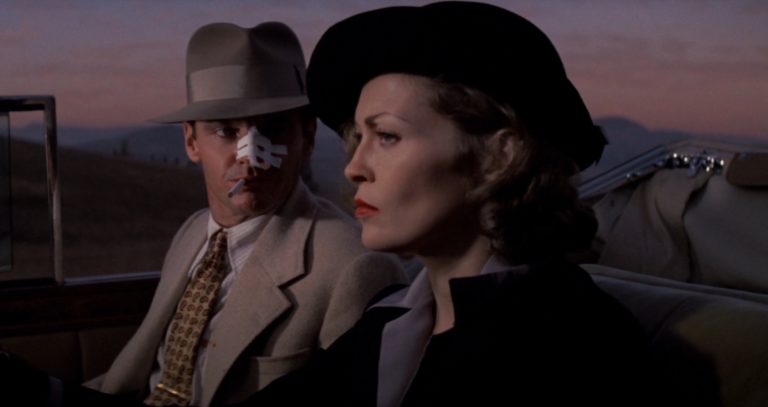
Nominated for 11 Academy Awards, this neo-noir was Roman Polanski’s last movie directed in the United States. It follows a private investigator (Jack Nicholson) who’s hired by the wife (Faye Dunaway) of a chief engineer for the Los Angeles Department of Water and Power, who suspects her husband may be unfaithful. While on the case, he discovers shady politicians and corrupt corporate leaders are scheming in a dispute over water rights. The movie is inspired by the “California Water Wars,” a real-life scandal of the 20th century. In a review, indiewire.com wrote, “Ultimately, Chinatown is about the perniciousness of evil, how it infects the homestead before it turns its sights on the larger culture, and how good men, though they do exist, are ultimately unable to stop it, a New Hollywood update on a Classical Hollywood tale.”
The Conversation (1974)

From acclaimed director Francis Ford Coppola, The Conversation is a mystery thriller led by Gene Hackman and is regarded as one of the best films of the ’70s. The plot centers around a surveillance expert who faces a moral dilemma when he discovers that murder may be involved in his investigation. In a review of the psychological masterpiece, Roger Ebert says, “The Conversation comes from another time and place than today’s thrillers, which are so often simple-minded. This movie is a sadly observant character study, about a man who has removed himself from life, thinks he can observe it dispassionately at an electronic remove, and finds that all of his barriers are worthless.”
The Parallax View (1974)
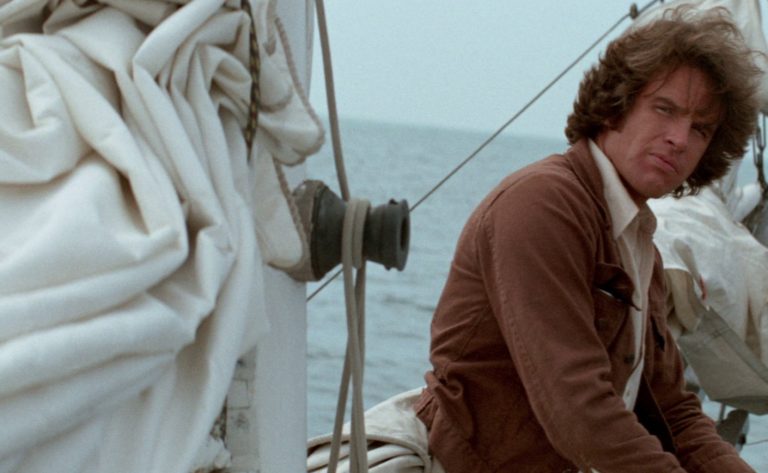
Based on a novel written by Loren Singer, this political thriller, directed by Alan J. Pakula, is an installment in his “Pakula’s political paranoia” trilogy. A senator is assassinated, and the reporter on the case finds himself in trouble when he discovers a conspiracy. A worldwide corporation is in control of the headlines. Roger Ebert wrote, “And the ending has an inexorable logic to it. Without giving it away, I can only say that it both suggests how such an organization might get away with murder, and how the ‘unassisted loner’ theory of assassination has a persuasive neatness to it.”
Three Days of the Condor (1975)

Recognized by the Academy for its film editing, Sydney Pollack’s Three Days of the Condor is a spy thriller set in New York City and Washington, D.C. The possibility of “dirty tricks” by the CIA is on full display in this mystery. The plot follows a CIA codebreaker (Robert Redford) whose coworkers are murdered, and upon discovering that CIA controllers are responsible, he fears for his life and battles against his own agency. Through the use of classic “spy movie tropes” and a well-written script, the suspects in this movie could be anyone.
All The President’s Men (1976)
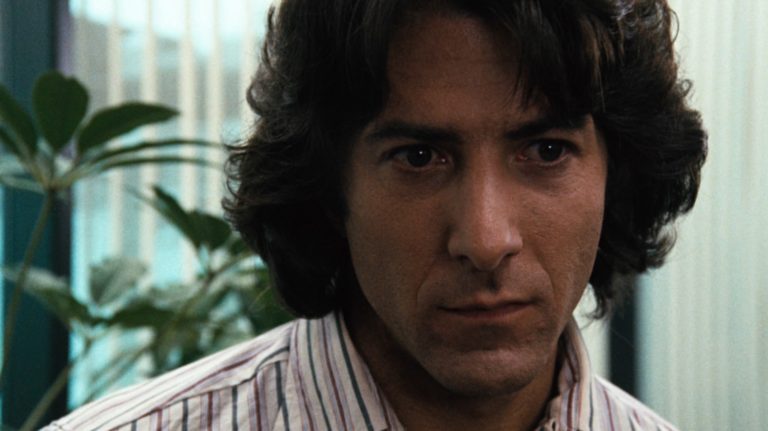
Chronicling the Watergate scandal, Alan J. Pakula’s award-winning drama follows the incidents that led to the resignation of President Richard Nixon. Based on the novel of the same name, the plot follows two reporters (Robert Redford and Dustin Hoffman) for the Washington Post and their investigation of the burglary of the Democratic Party Headquarters that was organized, executed, and covered up by White House operatives. A review on Spirituality & Practice noted, “From the opening slashes of a typewriter hammering out letters on a piece of white paper to the coda of Watergate news headlines reported on a lino-type machine, we are caught up in the visceral and intellectual thrills of investigative journalism as high adventure.”
The China Syndrome (1979)
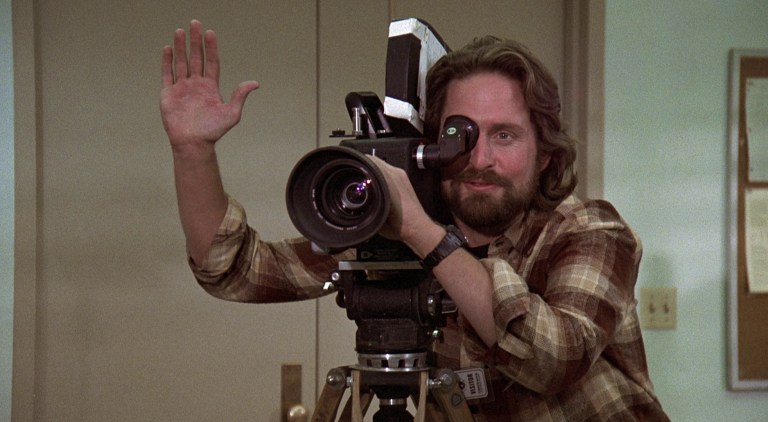
Kimberly Wells (Jane Fonda) is a TV reporter who was covering a human-interest story at a local nuclear power plant when she witnessed what she believes might have been a near nuclear meltdown. Her camera man Richard Adams (Michael Douglas) filmed the events from the plant’s control room. But executives at the TV station kill the story due to possible legal issues. The story is given a new life when plant manager Jack Godell (Jack Lemmon) comes to believe there is something wrong with the site after he personally experiences an earthquake-like tremor while at work. He then realizes that some documents have been falsified and there’s a contract out on his life because he already knows too much about what’s wrong with the nuclear reactor. He joins forces with Wells and Adams in trying to get the story out to the public. The film was given an intense burst of publicity due to the nuclear meltdown at Three Mile Island in Pennsylvania only twelve days after The China Syndrome was released. Roger Ebert writes, “The China Syndrome is a terrific thriller that incidentally raises the most unsettling questions about how safe nuclear power plants really are. It was received in some quarters as a political film, and the people connected with it make no secret of their doubts about nuclear power. But the movie is, above all, entertainment: well-acted, well-crafted, scary as hell.”
Winter Kills (1979)
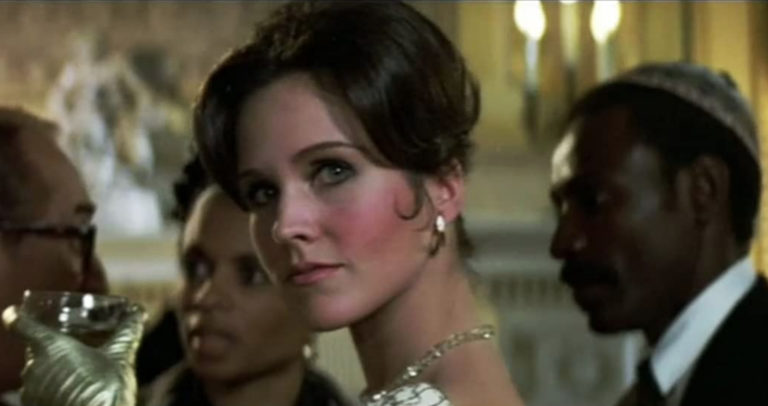
Based on the best-selling novel of the same name, Winter Kills is a black comedy that loosely examines the assassination conspiracy of President John F. Kennedy. The plot of William Richert’s movie follows the half-brother (Jeff Bridges) of the assassinated president and his attempts to solve the mystery. A review on Stream On Demand mentions, “Though technically a work of fiction, Winter Kills (1979, R) is the maddest and most entertaining of Kennedy conspiracy thrillers, a wild kaleidoscope of clashing theories directed with wit and performed with gusto by an astounding cast.”
Blow Out (1981)
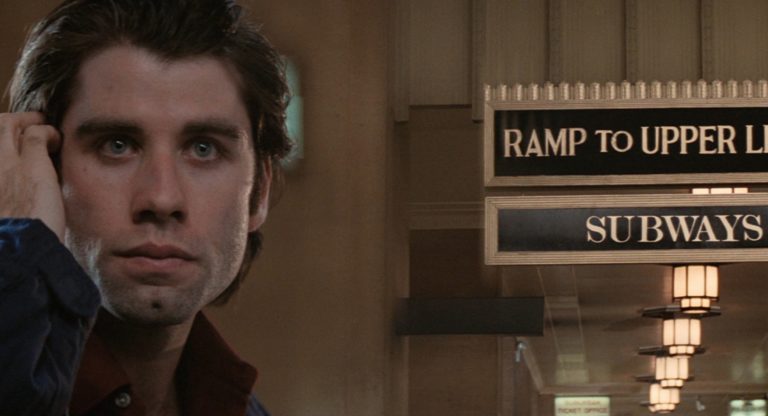
John Travolta stars in this neo-noir mystery thriller directed by Brian De Palma. When a sound technician accidentally records audio evidence of an assassination of a possible future president, he and a possible eyewitness investigate the murder. With some slight changes to the plot, Blow Out is directly based off of 1966’s Blowup. A review in Cinephilia and Beyond states, “A stylish American thriller knee-deep in paranoia, Brian De Palma’s Blow Out is a neatly packed, thrill-ridden film executed on a level far beyond average filmmaking.”
90s Conspiracy Movies
Jacob’s Ladder (1990)
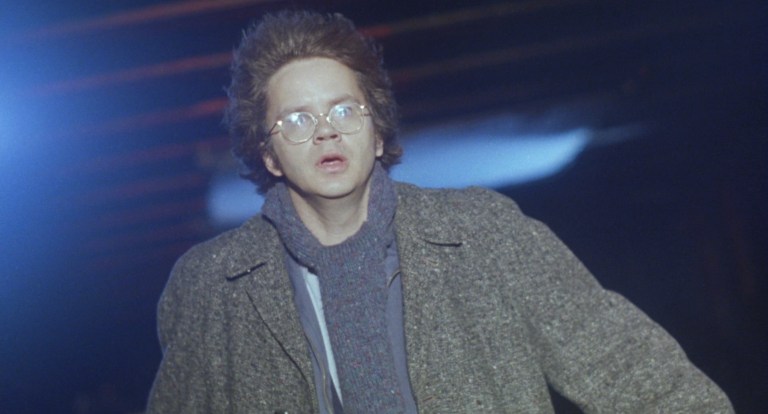
Tim Robbins stars as Jacob Singer, a traumatized Vietnam War vet who is struggling with the death of his six-year-old son and is plagued by increasingly vivid and disturbing visions of his time in the military. When he’s contacted by people who fought with him in the war and they all share the same story of being psychologically tormented by their time in the service, he meets a chemist named Michael who tells him that he and his platoon were administered an experimental drug by the government called BZ, or quinuclidinyl benzilate. The drug was intended to increase the troops’ aggressiveness in battle, but instead it caused them to violently turn on each other as well as to slowly lose their minds. Despite the fact that the movie is fiction, BZ is an actual mind-control drug that the US government has used on unwitting subjects.
Total Recall (1990)
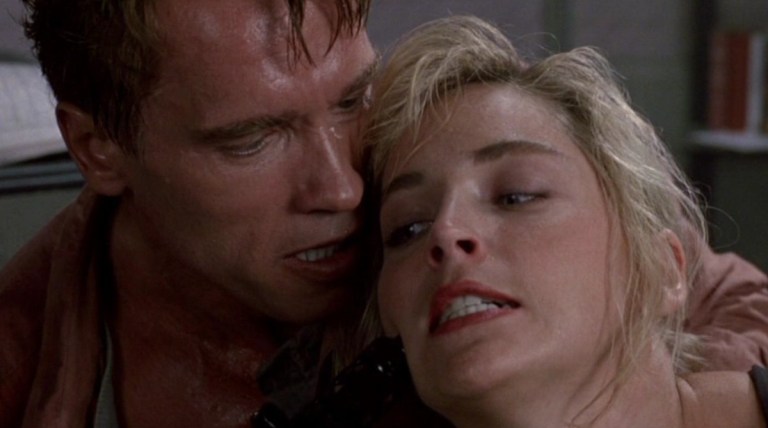
Based on 1966 Philip K. Dick sci-fi short story “We Can Remember It for You Wholesale,” director Paul Verhoeven’s Total Recall stars Arnold Schwarzenegger as Douglas Quaid, a construction worker in the year 2084 who receives an artificially implanted memory of life on Mars. But it turns out that he’s actually been to Mars in the past and has been sucked into an interplanetary conspiracy that implicates the Martian government, intelligence agents from outer space, and the US government. Roger Ebert writes that “the plot, based on a story by the great science fiction writer Phillip K. Dick, centers on an intriguing idea: What would happen if you could be supplied with memories? If your entire ‘past,’ right up until this moment, could be plugged into your brain, replacing the experiences you had really lived through?”
JFK (1991)
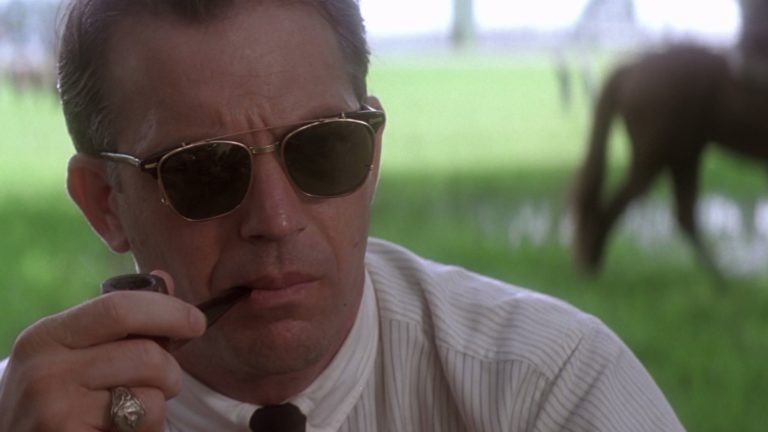
Nominated for eight Academy Awards (winning two), Oliver Stone’s JFK is a political thriller following an investigation into the murder of President John F. Kennedy. Based on two novels, JFK explores the paranoia a generation dealt with surrounding the president’s murder. With incredible performances mixing reenactments and historical footage, the possibility of sinister forces surrounding this event is simply entertaining.
Reopening the case after finding evidence of conspiracy and cover-up, the district attorney (Kevin Costner) faces pushback from the government as he digs into the possibility that Lee Harvey Oswald (Gary Oldman) isn’t the only one to blame for the assassination.
Sneakers (1992)
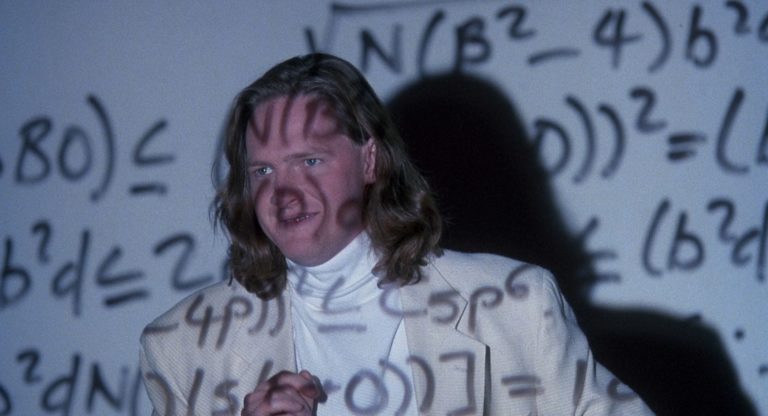
Directed by Phil Alden Robinson, this thriller follows a computer hacker (Robert Redford) and his team whose business is testing security for companies in San Francisco. The hackers are contacted by the National Security Agency and tasked with retrieving a powerful decoder. The team finds the program could potentially end up causing more harm than good, and when the true motivation from the NSA agents is discovered, the head hacker is framed for murder. A review in Time Out noted, “This is a bizarre hybrid, a hi-tech caper movie with lo-tech charm; an action pic with incongruously mellow Californian pacing; a post-Cold War thriller with sassy wit.”
The Firm (1993)
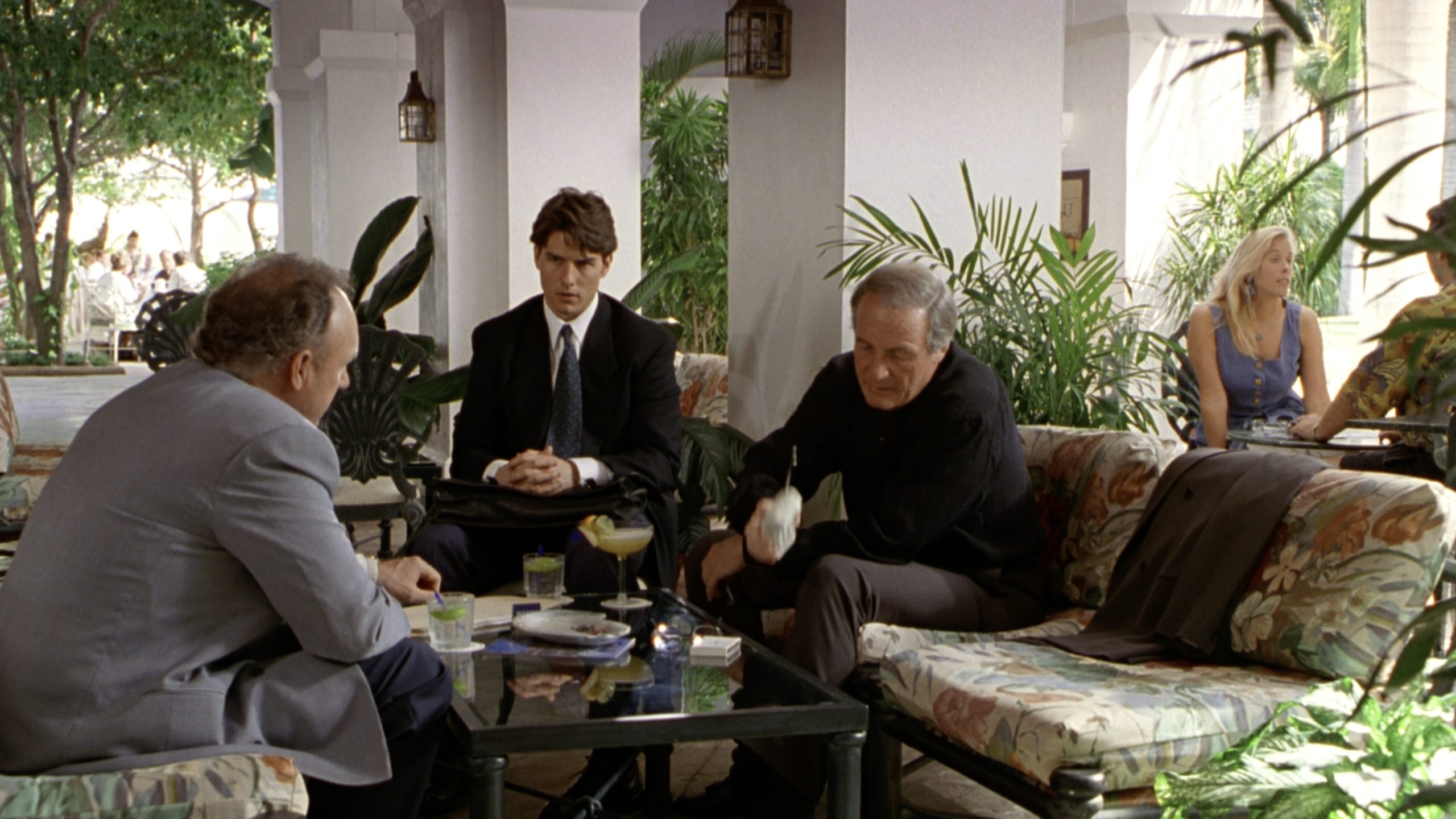
Based on the John Grisham novel of the same name, The Firm stars Tom Cruise as Mitch McDeere, a promising young Harvard law grad who fields several offers from high-profile law firms before he decides on a smaller firm in Memphis, TN that is led by Oliver Lambert (Hal Holbrook) and Avery Tolar (Gene Hackman). But within weeks of his arrival at the new firm, two lawyers are killed when their boat suddenly explodes. McDeere is then approached by FBI agents who tell him that his new law firm is deeply entangled with a Mob family from Chicago and that many young lawyers have been killed while working for the firm. If Mitch continues with the firm, he will face prosecution as a criminal accomplice. If he cooperates with the authorities, he will face being murdered by the firm’s hired thugs.
The Pelican Brief (1993)
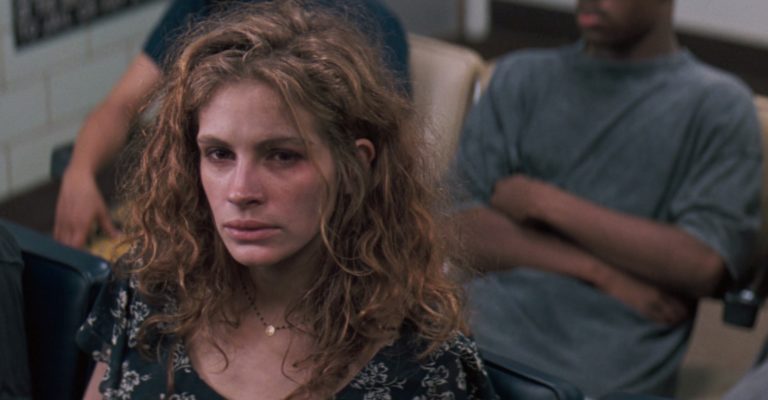
Based on the novel by John Grisham, Alan J. Pakula’s thriller follows a young law student (Julia Roberts) who is “found wanted” after completing a legal brief covering the assassination of two Supreme Court Justices. With the help of a journalist (Denzel Washington), they discover a conspiracy that reaches the top of the government ladder.
The Net (1995)
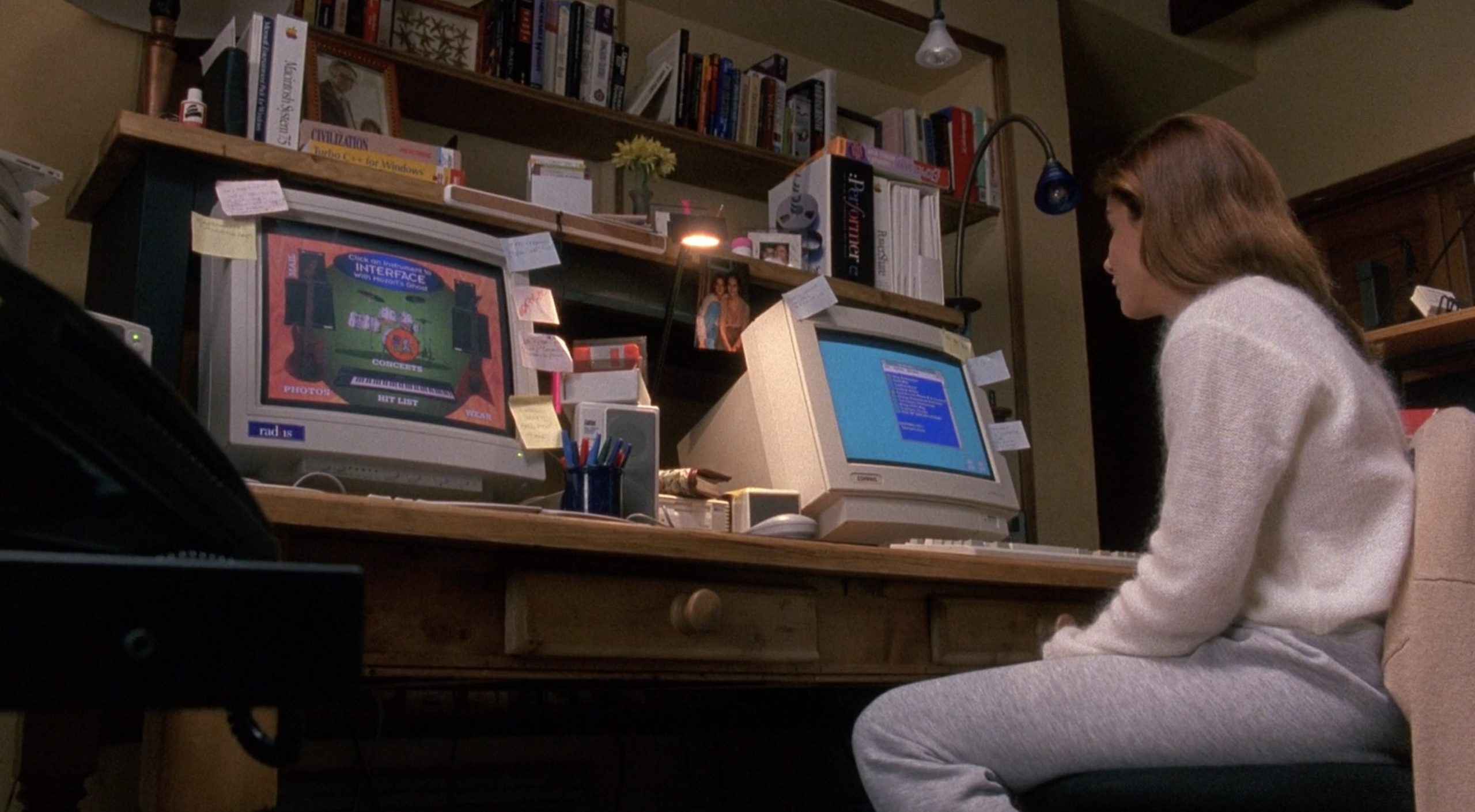
In one of the first Hollywood features to focus on the internet, Sandra Bullock stars as Angela Bennett, a computer programmer who was “extremely online” back in the early 1990s, long before people effectively lived and breathed online like they do now. An online acquaintance sends her a computer program that he says has a weird glitch that he needs Angela to rectify. But the night he left to meet her, he died in a plane crash. Soon she finds that all of her public records are erased and that she has been assigned an entirely new identity—one with a criminal record.
Wag the Dog (1997)
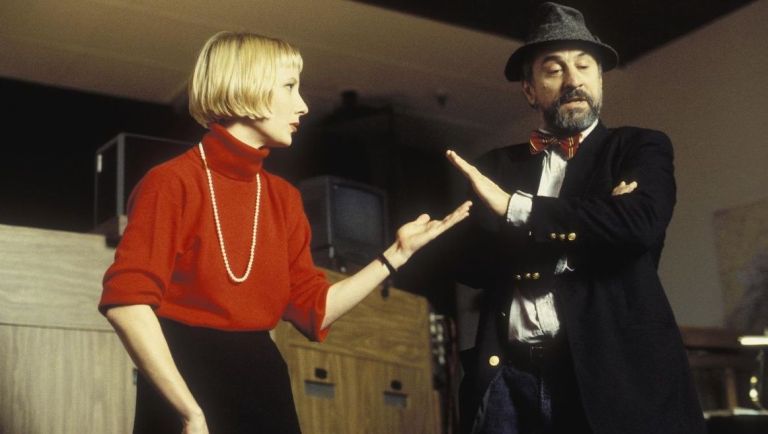
Only two weeks away from another presidential election, the incumbent US president becomes embroiled in a sex scandal. A political spin doctor named Conrad Brean (Robert DeNiro) is summoned to the White House for advice. He suggests that intelligence experts fabricate a war with Albania to divert attention from the sex scandal and ensure an easy reelection. Many elements in the movie seemed to be repeated the next year in real life when President Bill Clinton ordered the bombing of Middle Eastern targets in an apparent attempt to deflect attention from his sex scandal with Monica Lewinksy. Reel Views writes, “the movie is intelligent, but it’s also a lot of fun. This is the kind of film that you can laugh and think your way through. I look forward to seeing Wag the Dog another time, and I think I’ll enjoy it as much, if not more. No matter what your political persuasion is, or how cynically you regard the goings-on in Washington, you will be entertained.”
The Game (1997)
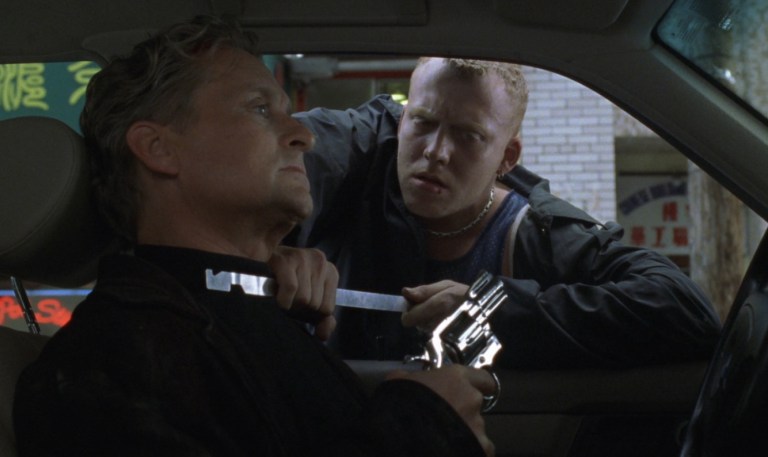
Michael Douglas portrays Nicholas Van Orton, a wealthy but cold-blooded San Francisco investment banker whose younger brother (Sean Penn) gives him a ticket to Consumer Recreation Services, a company that promises to provide virtual-reality experiences specifically catered to the recipient’s tastes and needs. What originally seemed like a fun game unspools into a living nightmare for Van Orton. GQ writes, “In a time of hoaxes, surveillance, and paranoia, there might be no better movie to watch than David Fincher’s underrated 1997 film The Game….The film was mostly read as fantasy about a control freak losing his control but discovering his humanity. 21 years later, though, The Game seems more relevant than ever as real conspiracies and fake theories dominate the discourse.”
Enemy of the State (1998)
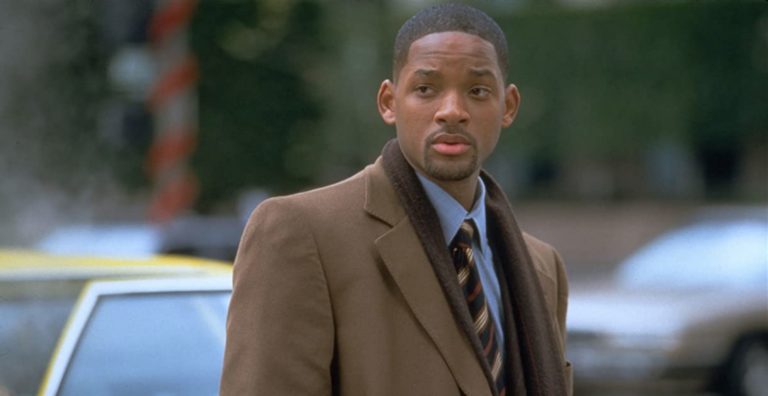
The life of Robert Clayton Dean (Will Smith) is turned upside down when he’s framed for the murder of a congressman. With the help of an ex-intelligence agent, he’s on the run from the NSA and their plan to implement new surveillance legislation. Attacking the idea of a society where surveillance technology is used to monitor people’s everyday lives, director Tony Scott delivers the paranoia and explores an abuse of power in a different America. Roger Ebert wrote, “It’s not the government that is the enemy, this movie argues, so much as bureaucrats and demagogues who use the power of the government to gain their own ends and cover their own tracks.”
New Conspiracy Movies
Minority Report (2002)
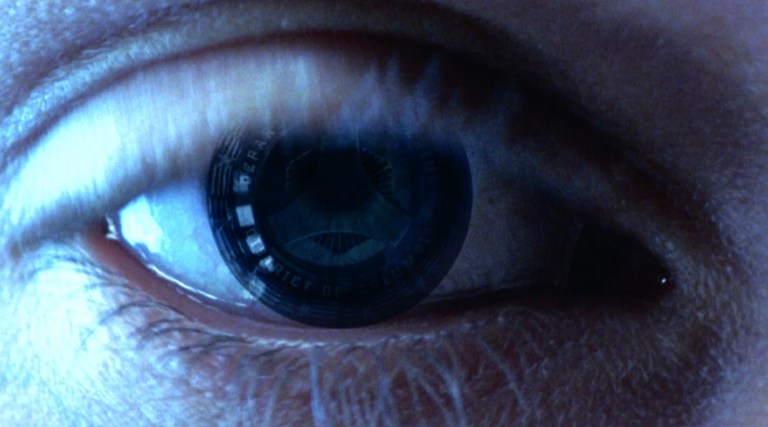
Tom Cruise stars in this futuristic thriller by Steven Spielberg that is set in the year 2054, when an elite special unit of three intellectually gifted humans known as the “Pre-Cogs” are so adept at pattern recognition, they’ve been able to predict crimes with such accuracy that not a single homicide has been committed in Washington, DC for six years. Cruise stars as police officer John Anderson, who lost his son to murder six years previously and has stopped several murders over the course of his career. But one day he is informed, to his horror, that the Pre-Cogs have named him as the next potential murderer. While evading the Pre-Cogs, his attention focuses on the “Minority Report” of one of the three who claimed that he was not going to commit murder. Roger Ebert writes, “Spielberg, who is a master of technology, trusts only story and character, and then uses everything else as a workman uses his tools….This film is such a virtuoso high-wire act, daring so much, achieving it with such grace and skill. Minority Report reminds us why we go to the movies in the first place.”
Syriana (2005)
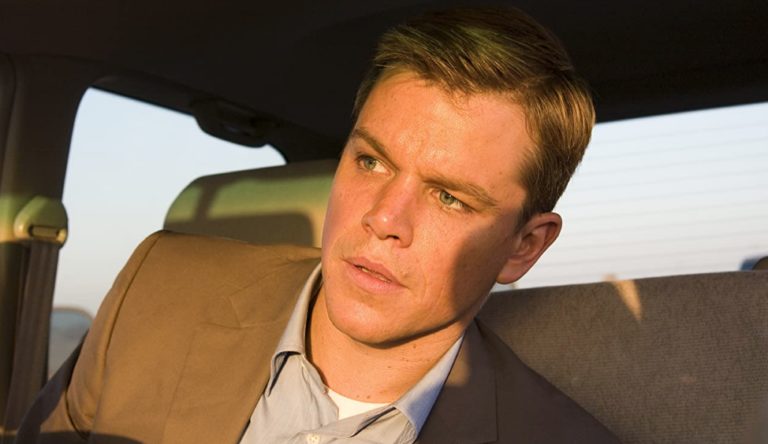
Loosely based off of Robert Baer’s memoir, Syriana is a geopolitical thriller revolving around the Middle Eastern oil industry. The plot follows numerous story lines as an American lawyer is tasked with merging oil companies. Heavy drama ensues as corporations, politicians, lawyers, and governments are caught up in a fight for oil. Spread across five different continents and filmed in over 200 locations, the movie referenced real-life events of politicians, oil owners, and powerful lobbyists. In a review in New York Mag, Ken Tucker said, “If at times the complexity of the plot—which I don’t claim to have completely followed on just one viewing—threatens to overwhelm viewers, the extra exertion becomes part of the pleasure. That, and the movie’s distinctive, discomfiting take on moral rot, the overriding quality that seeps throughout Syriana like blood, or oil.”
The Island (2005)
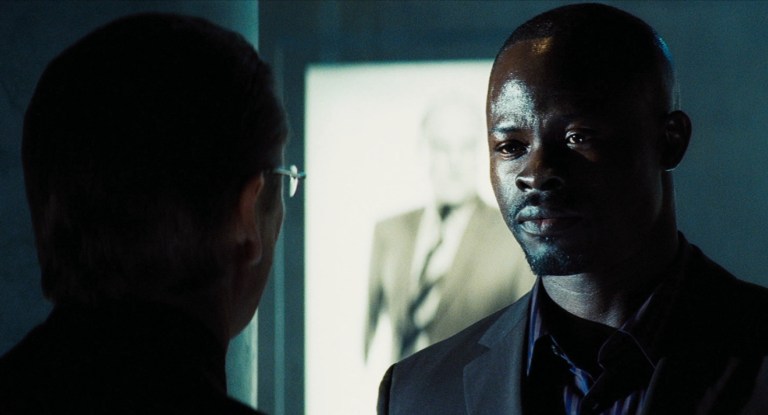
A man named Lincoln Van Echo (Ewan McGregor) is a slave worker in the near future under a fascistic and tightly controlled US government where the only incentive for all the workers is to win the lottery and get sent to “The Island,” which is a paradisiacal oasis and the only uncontaminated, pathogen-free place left on the planet. The only reason for the slave workers of “The Sector” to go on living is the outside chance that they will one day win the lottery and get to live on The Island. Roger Ebert wrote that the first half “is a spare, creepy science fiction parable, and then it shifts into a high-tech action picture. Both halves work.”
The Da Vinci Code (2006)
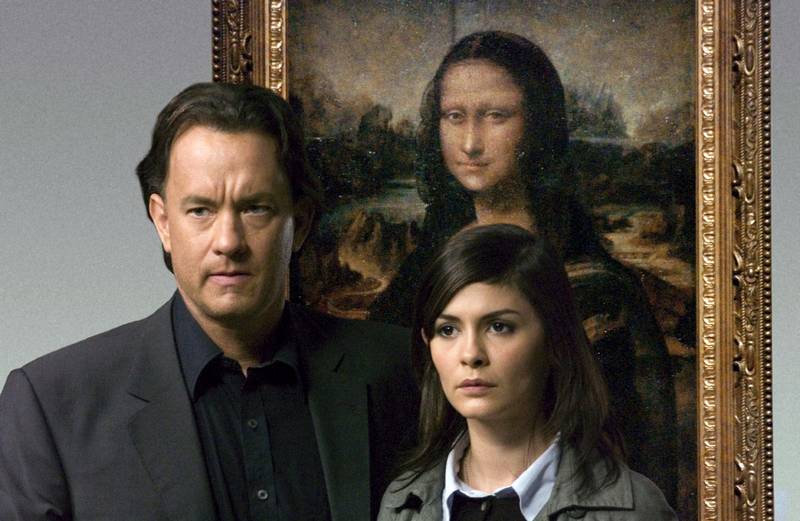
In this thriller directed by Ron Howard and based on the massively successful novel by Dan Brown, a murder takes place inside the Louvre in Paris. The victim has strange symbols carved into his body. Police summon Sophie Neveu (Audrey Tautou), a cryptographer, as well as Robert Langdon (Tom Hanks), an esteemed symbologist from the USA. Together the pair pore over symbols in Da Vinci’s paintings. Clues lead toward an obscure millenarian sect called The Priory of Sion, which taught that Jesus Christ and Mary Magdalene had been lovers who produced a daughter named Sara. Langdon, who sees this conspiracy’s tentacles also reaching into the Knights Templar and Opus Dei, calls it “the greatest cover-up in human history.”
Michael Clayton (2007)
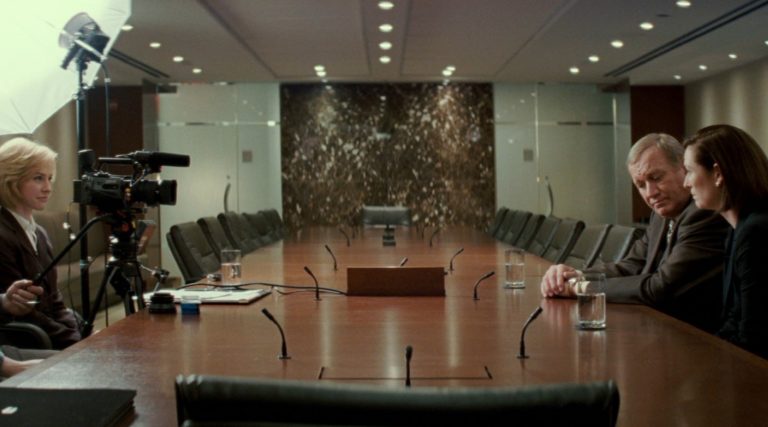
In his directorial debut, Tony Gilroy puts corporate America at center stage in a gripping story of greed, conspiracy, and corruption. The plot follows a former prosecutor (George Clooney) who is hired by a corporate law firm to clean up their mess. Representing the corrupt chemical corporation in a multi-billion-dollar legal suit pushes him to his edge, as he chooses to fight for the company, or his own sanity. Michael Clayton explores the area that lies between immorality and morality and the clash of ethics that ensues when powerful people will do anything to protect themselves.
Hot Fuzz (2007)
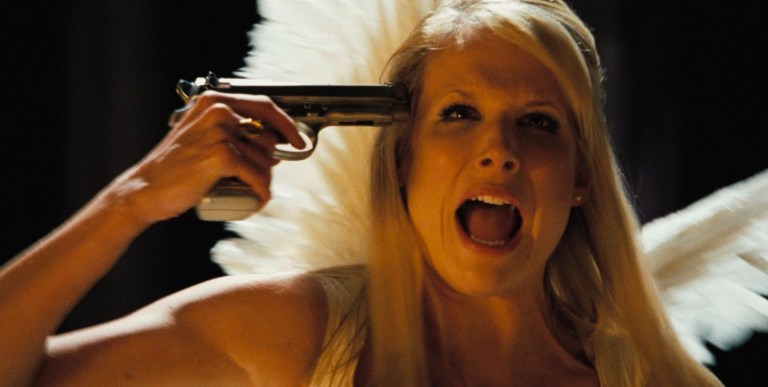
Nicholas Angel (Simon Pegg) is the best cop in London—so good, his arrest rate is four times higher than his closest competitor. In an attempt to raise the self-esteem of his associates, Angel is moved to a rural village named Sandford that has the country’s lowest crime rate. Then a sudden spate of murders gives Angel reason to believe that a gigantic conspiracy is the only thing keeping Sandford safe. Reel Views writes, “A slightly trimmed down Hot Fuzz might have provided a more heady brew, but even with a little more fat than is necessary, this one offers enjoyable fare with more than one masterful course.”
Shooter (2007)
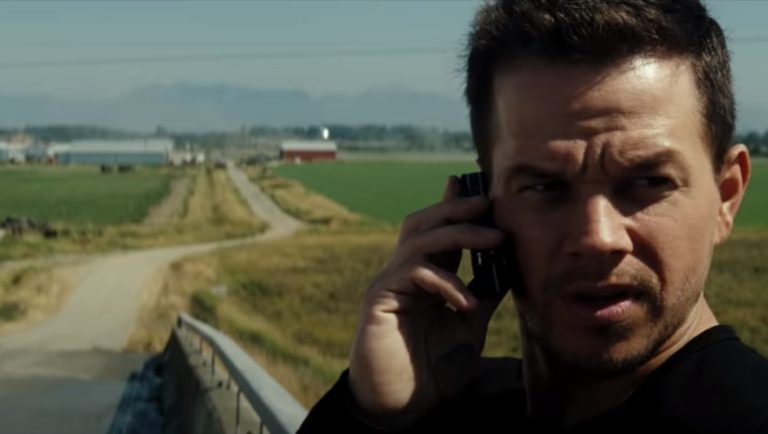
Trained by a former US Marine scout sniper to depict realistic shooting tactics, Mark Wahlberg stars in this thriller based on Stephen Hunter’s novel, Point of Impact. After learning of a plan to kill the president, an expert marksman (who left the military) is called back to work. He’s then caught in the conspiracy when he is double-crossed in the process. A review from the Ace Black Movie Blog mentions, “The action scenes are sustained and generally coherent, and the bad guys lining up against Swagger are worthy: treacherous, powerful, and deeply entrenched in modern-day pragmatic geopolitical meddling.”
The Bourne Franchise (2002-2016)
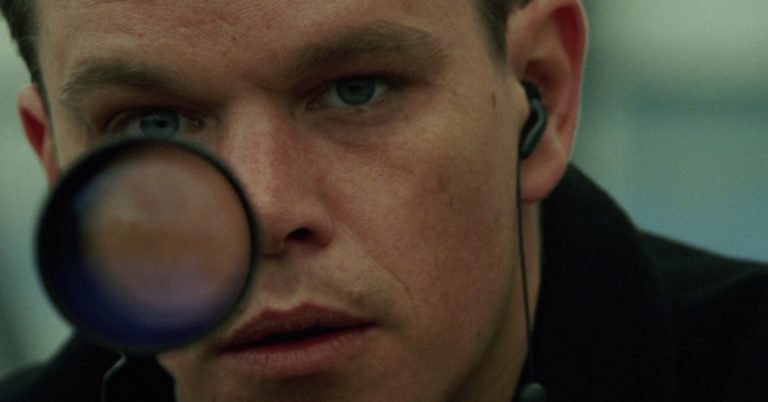
Adapted from Robert Ludlum’s Bourne series, The Bourne Identity (2002), The Bourne Supremacy, (2004), and The Bourne Ultimatum (2007), are often referred to as one of the best conspiracy stories to ever hit the screen. Matt Damon plays a CIA assassin battling dissociative amnesia and in an action-packed journey, he fights to learn about his past. What is for certain is that “Jason Bourne” was born as David Webb, son of CIA analyst Richard Webb. For 2012’s The Bourne Legacy, Damon did not reprise his role; the film instead introduced the character of Aaron Cross, played by Jeremy Renner. Matt Damon would return to reprise his role in 2016’s Jason Bourne.
Shutter Island (2010)

Leonardo DiCaprio stars as Teddy Daniels, a US Marshal who in 1954 is assigned to investigate the disappearance of a female mental patient and child-killer from Ashecliffe Hospital, a remote and heavily guarded asylum on Shutter Island off the coast near Boston. As his investigation deepens, Daniels begins to suspect that the hospital is host to a battalion of unethical doctors who practice sinister and cruel psychological experiments upon their patients. As he dives deeper into the coverup, Daniels starts to question his own sanity and wonders whether he, too, is being used as a psychological guinea pig Roger Ebert writes, “This is Martin Scorsese’s evocation of the delicious shuddering fear we feel when horror movies are about something and don’t release all the tension with action scenes….In its own way it’s a haunted house movie, or make that a haunted castle or fortress. Shutter Island, we’re told, is a remote and craggy island off Boston, where a Civil War-era fort has been adapted as a prison for the criminally insane.”
Edge of Darkness (2010)
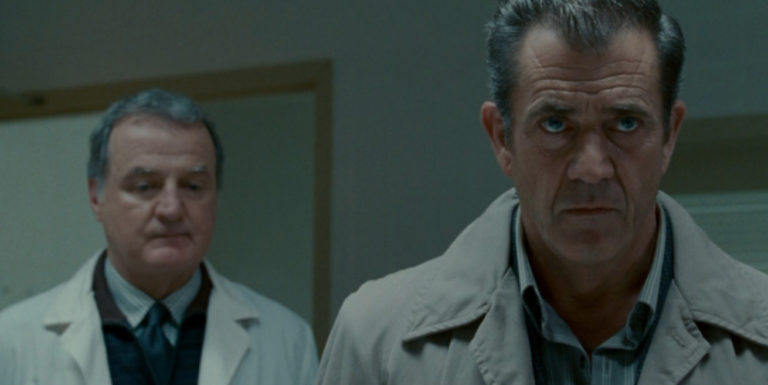
Mel Gibson plays a detective whose daughter is murdered, which causes him to hunt down the killer. During this undertaking, he discovers her secret life which involves government collusion, corporate coverups, and murder. Edge of Darkness is based on a BBC television series of the same name. Roger Ebert wrote, “It serves as a reminder that the purpose of a corporation is not to be patriotic, but to maximize profits for its officers and shareholders.”
Captain America: The Winter Soldier (2014)
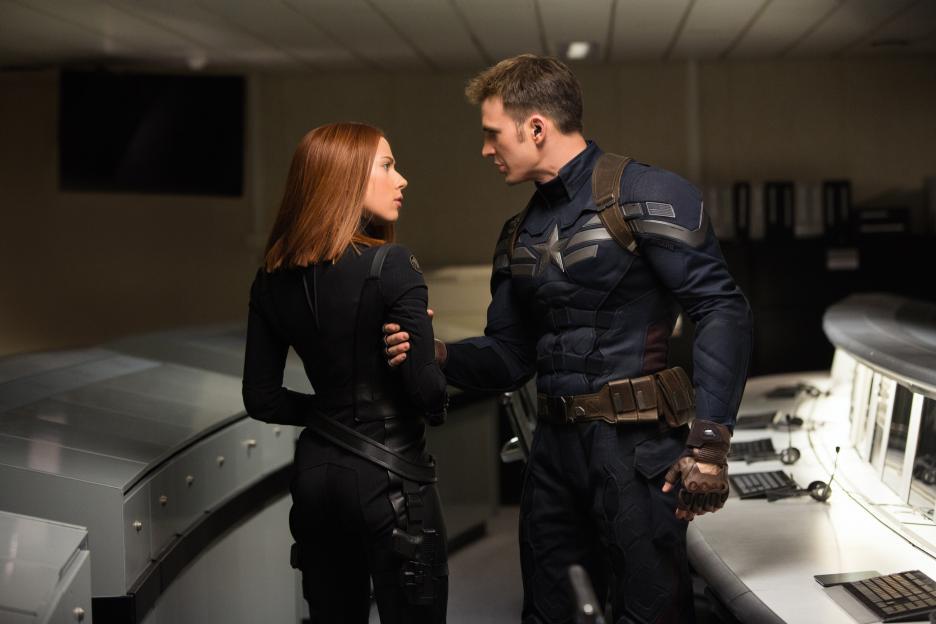
Steve Rogers (Chris Evans) is an Avenger who’s been thawed out from a suspended-animation deep freeze of 50 years and is finding it difficult to adjust to the modern world. Then, when Director Nick Fury is murdered by a shadowy assassin known only as the Winter Soldier, Rogers teams up with fellow Avenger the Black Widow to both capture the Winter Soldier and bring the Hydra organization to heel. Reel Views writes, “Captain America: The Winter Soldier represents the first film from Marvel Studios since The Avengers to capture the true superhero spirit: plenty of derring-do, action, adventure, and an ending that doesn’t fall apart.”
21 Bridges (2019)
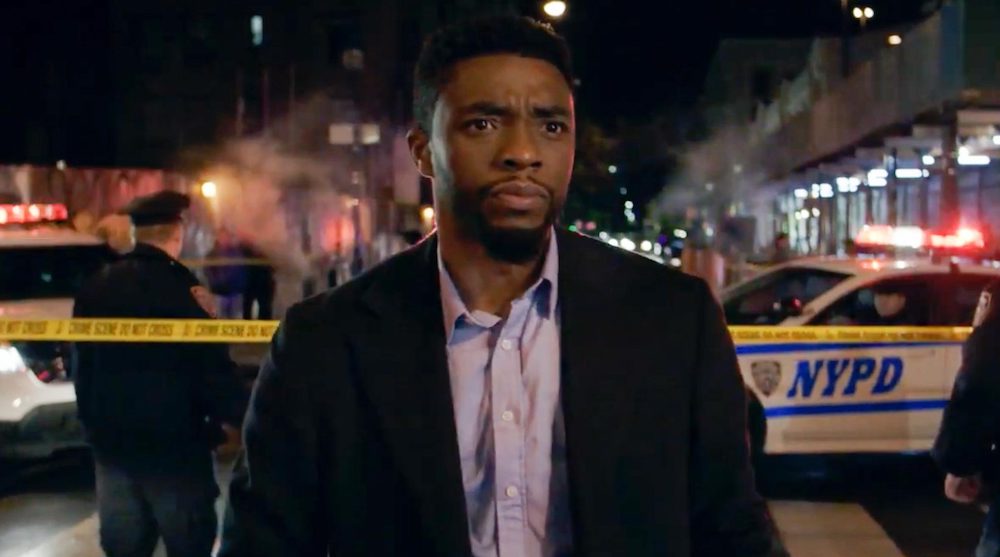
In a film released a year before his untimely death from colon cancer, Chadwick Boseman portrays Andre Davis, an NYPD detective tasked with finding a pair of cop killers. In the course of his investigation, he finds that his fellow officers are embroiled in a vast criminal conspiracy. He starts wondering whether he is the hunter or the hunted. During the hunt for the cop killers, Manhattan is locked down for the first time in the city’s history—including all 21 bridges that lead into it. The Austin Chronicle wrote, “If 21 Bridges were a paperback novel, you’d read the entire thing during a three-day beach weekend. When offered as in-flight entertainment, countless people will be entirely satisfied to spend two hours in the air watching this movie.”
Dark Waters (2019)
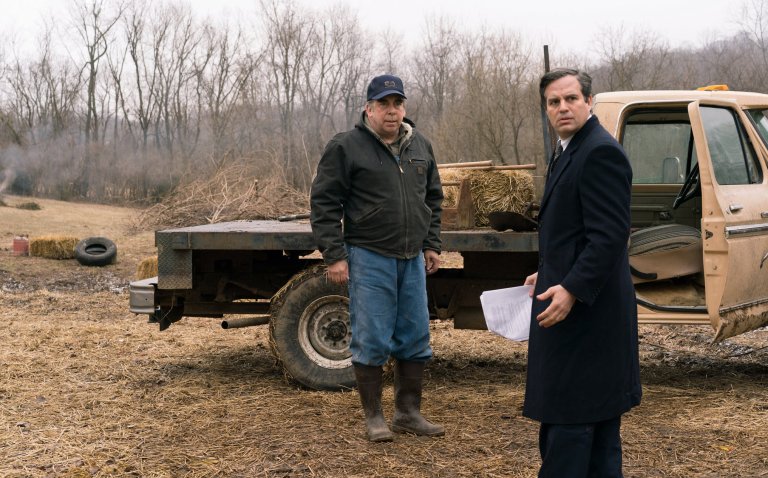
In 2016, journalist Nathaniel Rich published an expose in The New York Times called “The Lawyer Who Became DuPont’s Worst Nightmare.” It told the true story of how a corporate defense attorney from Cincinnati named Robert Billott was visited by a farmer from West Virginia named Wilbur Tennant who claimed to have discovered the reason why all 190 of his cows had died from some bizarre disease. They had been poisoned by the runoff water from a nearby sewage facility run by E.I. du Pont Nemours and Company. Deciding to take the case based on principle rather than any potential profit, Billott was able to win several multi-million-dollar class-action lawsuits from du Pont on behalf of their victims—and according to estimates, the specific toxin, PFOA-C8, may already be in the bloodstreams of 99% of people on Earth. Dark Waters retells this grisly tale with Mark Ruffalo playing Billott and Bill Camp as Wilbur Tennant.
The Hunt (2020)
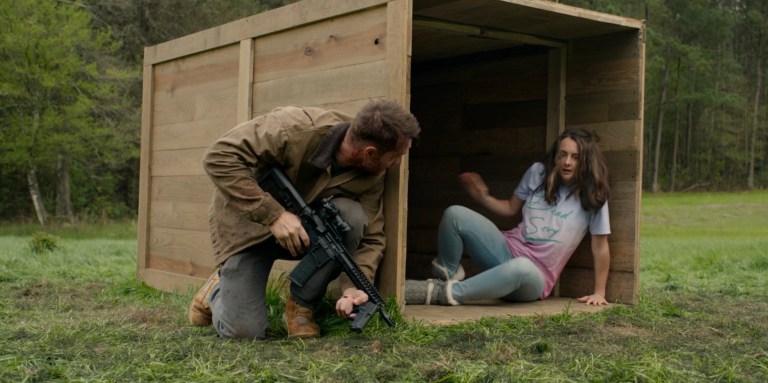
In what was seen by many as an allegory of the deep social divisions in America during the Trump presidency, a group of eleven “deplorables” wake up at a manor in an unspecified rural area somewhere in Arkansas. They quickly realize that their situation resembles the “Manorgate” conspiracy theory that they’d all ascribed to, and the “hunt” in the title is for them—to torture and kill them one by one. It turns out that their antagonists were people from the other side of the political spectrum who gathered their victims together in an effort to make the “Manorgate” conspiracy theory come true. Reel Views writes, “The Hunt has a fresh, breezy feel and seamlessly incorporates comedy into its more traditional horror elements.”
More Conspiracy Movies
- Executive Action (1973) Burt Lancaster stars as this conspiracy thriller about the assassination of John F. Kennedy.
- The Day of the Jackal (1973) a group of disgruntled French military veterans hire a British hitman they call the “Jackal” to assassinate President Charles de Gaulle.
- They Live (1988) in John Carpenter’s sci-fi horror, alien intruders are slowly taking over humanity.
- Nick of Time (1995) an accountant (Johnny Depp) is forced by thugs to either kill the governor or allow his own daughter to be killed.
- Extreme Measures (1996) Hugh Grant and Gene Hackman lock horns in this thriller about secret medical experiments performed upon the homeless.
- Pi (1998) Darren Aronofsky’s directorial debut concerns a mathematician who seeks to reconcile the pure, bloodless elegance of math with the unhinged irrationality of human life.
- The X-Files (1998) is the first feature-length film based on the wildly popular conspiracy TV show of the 1990s starring David Duchovny and Gillian Anderson.
- Arlington Road (1999) a college professor starts to suspect that his normal-seeming neighbors are terrorists. See this list for more info — spoilers if you click the link though.
- The Insider (1999) Al Pacino stars as a former tobacco industry executive who spills dirty trade secrets once he’s fired from his job.
- I Witness (2003) local union politics in Tijuana help to mask the mass murder of exploited laborers.
- The Interpreter (2005) Yvan Attal stars in the title role as a female interpreter for the United Nations who overhears an assassination plot against an African dictator.
- The Constant Gardener (2005) Ralph Fiennes stars as a British diplomat living in Kenya whose wife was murdered as part of an international pharmaceutical conspiracy.
- Eagle Eye (2008) a sadistic woman uses cell-phone technology to wreak havoc on the lives of Jerry (Shia LaBoeuf) and Rachel (Michelle Monaghan).
- Valkyrie (2008) a group of Nazi officers concocts a plan to assassinate Adolf Hitler.
- The International (2009) Clive Owen takes on an international criminal ring that deals in illicit arms, terrorism, and racial genocide.
- Watchmen (2009) a group of disillusioned American superheroes investigate the death of a former colleague, uncovering a vast conspiracy.
- Angels & Demons (2009) in this sequel to The Da Vinci Code, Robert Langdon (Tom Hanks) travels to Rome to untangle a conspiracy by the Illuminati.
- The Nice Guys (2016) Russell Crowe and Ryan Gosling investigate the disappearance of a young woman, only to uncover a vast conspiracy.
- Unfriended: Dark Web (2018) is an internet horror media movie underpinned by a horrifying conspiratorial network of criminals.
- Under the Silver Lake (2018) a young man in Los Angeles (Andrew Garfield) seeks to investigate the disappearance of a female neighbor (Riley Keogh), only to uncover a massive conspiracy he didn’t expect to find.
- The Report (2019) in this thriller based on real-life events, a Senate staffer (Adam Driver) finds that the CIA lied to the American public regarding its post-9/11 Detention and Interrogation program.
- The Gray Man (2023) is a Netflix thriller about a CIA agent that untangles a conspiracy within the government.
